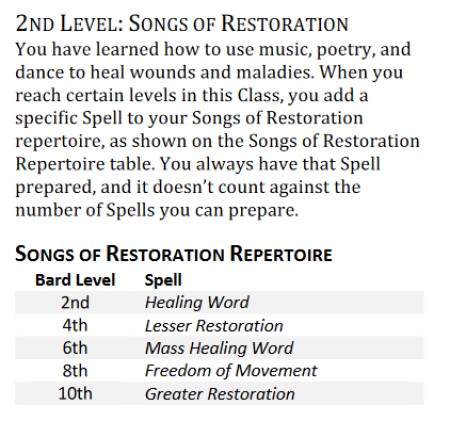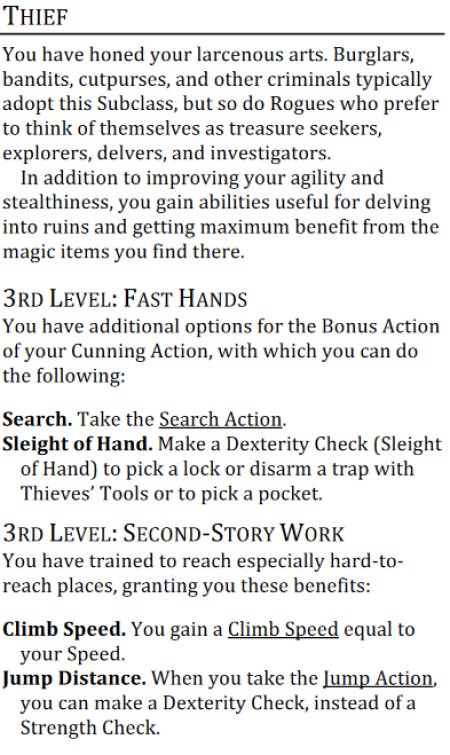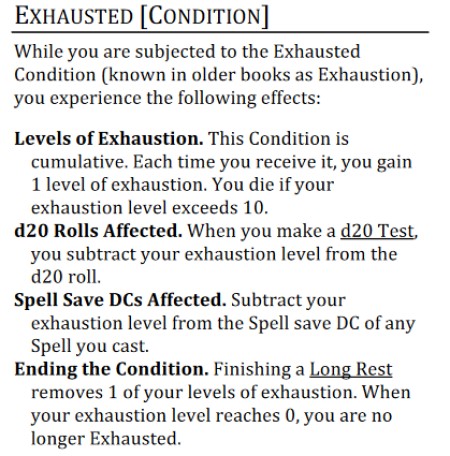Wizards of the Coast have released the One D&D Expert Class playtest. The tabletop publishing giant has been getting feedback from players around the world for what will be the next generation of the world’s most popular roleplaying game, making moderate changes to D&D 5e while ensuring that all past material will be backward compatible. WOTC has already received feedback from its first wave of material, which focused on core gameplay features such as combat and character creation. This will be the second wave of playtest material, which focuses on overhauling several character classes.
What is in the new One D&D Expert Class playtest?
The new One D&D Expert Class material went live in an official post on D&D Beyond. Anyone can download this batch of UA as a PDF and look at the changes themselves. First and foremost, the new playtest material has broken up the various player classes into different categories. Sorcerors, Warlocks, and Wizards are Mages. Barbarians, Fighters, and Monks are classified as Warriors. Clerics, Druids, and Paladins are called Priests. Finally, Bards, Rangers, and Rogues are referred to as Experts. Much like reworking magic spells into four different categories, this appears to be a case of restructuring elements of the game for clarity and accessibility purposes.

The first One D&D Expert Class getting adjusted is the Bard. The first major change is to their Bardic Inspiration. Originally, the Bard can roll a die when they see a party member has failed a skill roll and help them out. Now in this UA, they can also spend Bardic Inspiration to heal party members. This healing capacity continues with a new Songs of Restoration ability at level 2, which allows them to learn more advanced healing spells like Healing Word, Lesser Restoration, and Greater Restoration. There are also changes to the College of Lore subclass, which include Cunning Inspiration at level 6, which allows you to roll two Bardic Inspiration dice and choose the better result when aiding an ally.

Next in the One D&D Expert Class playtest is the Ranger. First, this underserved character class now gets Expertise as well as Spellcasting at level 1, giving them more early game options. Furthermore, it appears that Natural Explorer, Hide in Plain Sight, and Favored Terrain are gone. Replacing these highly situational feats are the following. At level 7 is Roving, which increases the Ranger’s movement speed while walking, swimming, or climbing. Level 11 gains Tireless, which lets you gain temporary health after a rest, as well as allowing you heal levels of Exhaustion after a short rest. Finally at level 13 is Nature’s Veil, where you can spend a bonus action and a spell slot to become invisible until the end of your next turn. The UA also adjusts the Hunter subclass, simplifying Hunter’s Prey at level 3 to just an extra d8 of damage when attacking an enemy, and introduces Multiattack level 10, which lets you cast Conjure Barrage with level 1 and 2 spell slots.

The One D&D Expert Class playtest makes some changes to the Rogue. This might be the least changed class in the UA. The only notable change to progression is Subtle Strikes at level 13, which lets you make attack rolls with advantage against any creature within 5 ft of an ally who isn’t incapacitated. There are some minor changes to the Thief subclass. Second-Story Work at level 3 has been revised so that your climb speed is equal to your movement speed. Use Magic Device at level 10 lets you attempt to use spell scrolls with an Arcana check. Also, Thief’s Reflexes at level 14 lets you take a second bonus action alongside your Cunning Action.

Finally, the One D&D Expert Class playtest includes some revised Feats as well as some new game terms. First, there is the introduction of Epic Boons, which are reserved for characters that have reached level 20. These include Epic Boon of Combat Prowess, which allows you to turn a missed attack into a hit once per battle, and Epic Boon of Fortitude which increases your maximum health by 40. As for game terms, Exhaustion is referred to as Exhausted and players can accumulate ten levels instead of six before dying. Furthermore, Inspiration is now referred to as Heroic Inspiration, and it can be granted either at the GM’s discretion or if a player rolls a 1 on a skill test.
The feedback survey for the One D&D Expert Class playtest opens up on October 20. In the meantime, feel free to download and try out these new rules at your own tables.
One D&D Expert Class Playtest Now Live
Source: Pinay Guide Blog
Walang komento:
Mag-post ng isang Komento